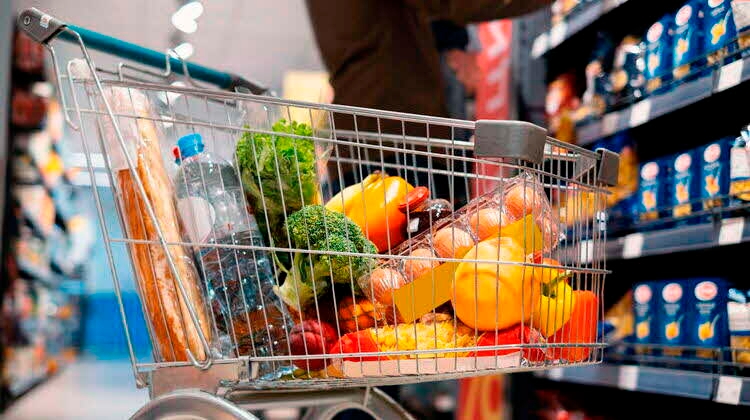Rise in grocery price: What can we do?
Such items would be 10kg locally-produced rice, one packet of cooking oil, 10 eggs, 1kg of flour and 1kg of sugar.20 years ago, only RM50 was required for a full trolley’s worth of kitchen goods. Now, with the same RM50, one is able to buy only three to five items.
20 years ago, only RM50 was required for a full trolley’s worth of kitchen goods. Now, with the same RM50, one is able to buy only three to five items. Such items would be 10kg locally-produced rice, one packet of cooking oil, 10 eggs, 1kg of flour and 1kg of sugar.
This is called inflation, or in simple terms, a price hike in items. This is something that cannot be avoided by any country in the world.
Inflation is a normal process in a country’s economy. But, when inflation strikes in a way that is uncontrollable as what happened in early-2023, it becomes a burden to all of us.
Why the sudden rise in prices?

The issue of rising prices is one that is complex as it involves many hands. Let’s take the rise of rice prices for example:
90% of the rice in the market consists of white rice, while the remaining 10% consists of fragrant rice, glutinous rice and basmati. As for the white rice, a majority that is sold in market is local rice.
Regarding local rice, the price is controlled by the government at a rate of RM2.60 per kilogram and imported rice price is not controlled. Prior to this, the prices of local rice and imported rice were not starkly different from one another, the difference being about RM5.
However, with global issues such as India halting exports to other countries to ensure sufficient supply for their people and Thailand imposing a 50% increase in rice prices, imported rice now is sold at a price that is far more expensive than local rice.
The rise in the price of imported rice has caused Malaysians to shift their preferences to local rice, which results in the lack of local rice supply.
Besides that, the high exchange rates for Ringgit have also become a main factor of price increases.
An example can be seen in the price of chicken. Although poultry is farmed in the country, the chicken feed such as soy and corn are imported from Argentina and Brazil, which contributes to the hike in price in the feed in relation to the weakening Ringgit.
The inflation crisis is not just happening in Malaysia, but almost all other countries in the world due to global climate change, long-term effects of COVID-19 and the uncertain geopolitical scene.
For example, European countries are facing an energy crisis where the prices of oil and electricity is rising at an alarming rate.
What can we do?

What happens in the global and local economy is beyond our control. There is nothing we can do to change it. Sure, the government can provide action plans to slow down the rise in prices, so there is no need for us to be too focused or critical about how the government is handling the issue.
Instead, it would be better for us to focus on that which is within our control, that is our personal economy. The following are tips and ways to manage your finances during inflation:
1. Buying in bulk
For items that have a long shelf life like disposable diapers, baby milk powder and hygiene products, you may consider buying them in big quantities to get greater savings and soon reduce your monthly expenses.
2. Make a shopping list before heading to the grocery store
Before going out to buy items to fill your pantry, it is best to prepare a list of things that need to be purchased to avoid impulse buying at the grocery store. It would be even better to first survey ongoing promotions for more savings. You can also use applications (apps) like the KitaJaga and Hargapedia apps to make price comparisons.
3. Eat out less
If you often dine out on days you are in the office before this, perhaps you can try bringing your own lunchbox as well. One side dish and a vegetable dish would be enough for a serving. To save time and energy, you can also cook the dishes ahead for the week and freeze them. You would only then need to heat them up daily when you are ready to eat.
4. Practice a healthy diet
Many people make the wrong assumption that eating healthy requires spending a lot. That is not true; in fact, you can have a healthy eating lifestyle just by reducing the intake of ingredients that are not good to have in excess such as sugar, salt, fats and oil. Not only do you save, but you also get healthy too.
This is just one of the steps you can take in facing the rise of goods for a short period of time. If you are thinking about the long-term, you might want to consider increasing your salary by changing jobs, getting a second job, or work on a side business by joining us as a Takaful Advisor.
Sources:
